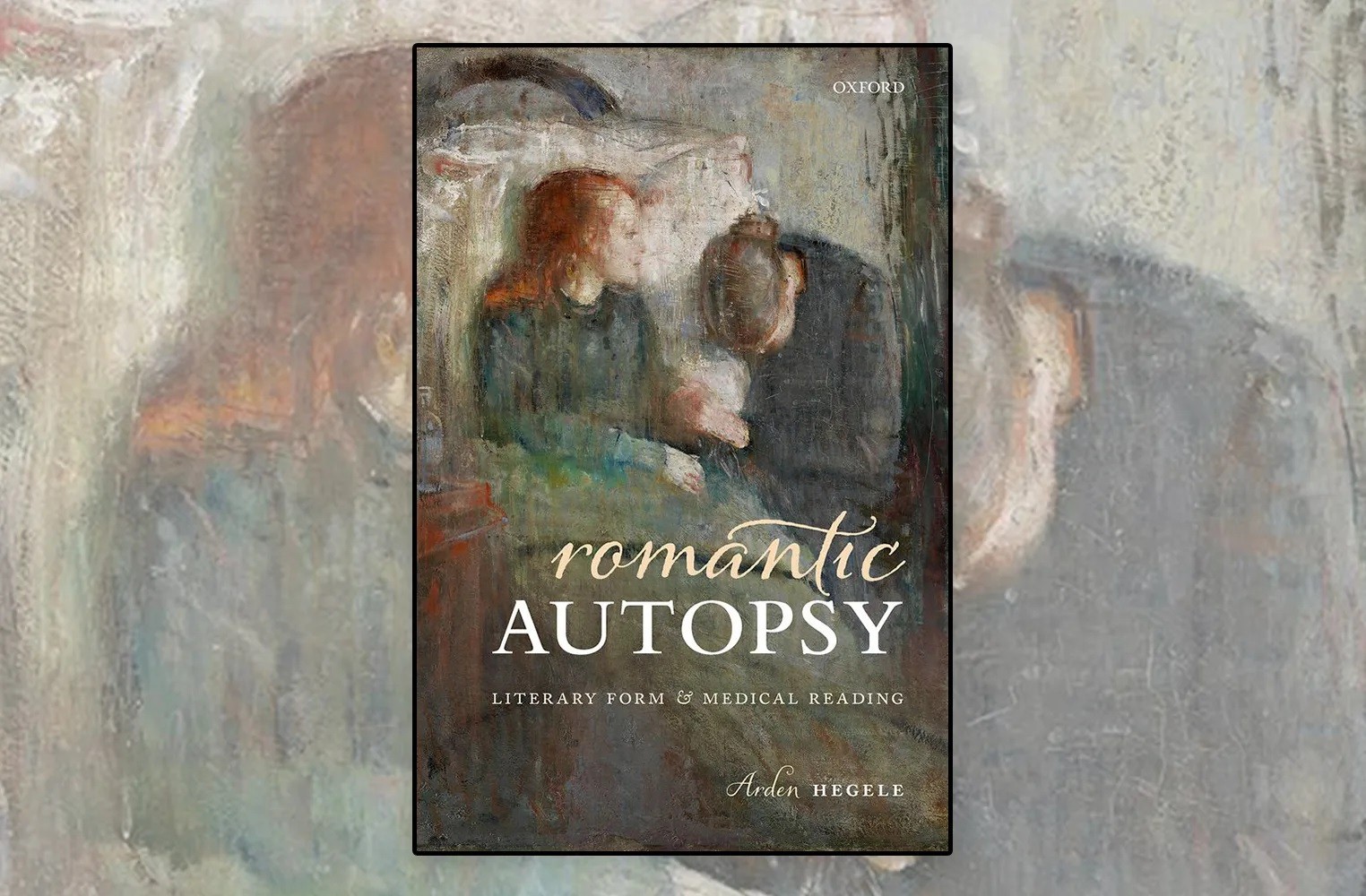Today, we do not expect a symptomatic reading to refer to bodily symptoms, or a literary dissection to be more than metaphorical. But this was not always true. In Romantic Autopsy, Arden Hegele considers a moment at the turn of the nineteenth century, when literature and medicine seemed embattled in rivalry, to find that the two fields collaborated to develop interpretive analogies that saw literary texts as organic bodies and anatomical features as legible texts. Together, Romantic readers and doctors elaborated protocols of diagnosis-practices for interpretation that could be used to diagnose disease, and to understand fiction and poetry.
This volume puts essential works of British Romantic literature that seem at first to have little to do with medicine, such as the lyrics of William Wordsworth, the elegies of Percy Shelley and Alfred Tennyson, and the novels of Mary Wollstonecraft, Jane Austen, and Mary Shelley, back into conversation with emergent medical disciplines of the period -- anatomy, pathology, psychiatry, and semiology. Poems and novels, Hegele argues, were historically understood through techniques designed for the analysis of disease; meanwhile, autopsy reports and case histories adopted stylistic features associated with literature. Countering the assumption of a growing specialization in Romanticism, these practices suggest that symptomatic reading (treating a text's superficial signs as evidence of deeper meaning), a practice still used and debated today, might have originated from Romantic diagnostics. The first study of the interconnected literary and medical analytics of British Romanticism, Romantic Autopsy charts an important history underlying our own approaches to literary analysis.
Please email [email protected] to request disability accommodations. Advance notice is necessary to arrange for some accessibility needs.
About the Author:
Arden Hegele is a Lecturer in the Discipline of English and Comparative Literature and an affiliated faculty member with Medical Humanities (Institute of Comparative Literature and Society) and Medical Humanities and Ethics (Columbia University Medical Center). She is interested in the intersection of medical knowledge with formalist and historicist literary approaches. Her research in Romanticism has been published in core journals, such as European Romantic Review, Romanticism,The Byron Journal, and Keats-Shelley Journal, and she has also published in Partial Answers, Gender and Education, and Persuasions.
About the Speakers:
Deidre Lynch is Ernest Bernbaum Professor of English Literature at Harvard University. Her most recent books include Loving Literature: A Cultural History (2015) and The Unfinished Book: Oxford Twenty-First Century Approaches to Literature (edited with Alexandra Gillespie, 2021).
Jenny Davidson is Professor of English and Comparative Literature. She writes about eighteenth-century literature and culture; other interests include British cultural and intellectual history and the contemporary novel in English. She is the author of four novels, Heredity (2003), The Explosionist (2008), Invisible Things (2010), and The Magic Circle (2013). She has published two books about eighteenth-century literature, Hypocrisy and the Politics of Politeness: Manners and Morals from Locke to Austen (Cambridge, 2004) and Breeding: A Partial History of the Eighteenth Century (Columbia, 2009).
Rachel Adams is Professor of English and Comparative Literature at Columbia University. She specializes in 20th- and 21st-century literatures of the United States and the Americas, disability studies and health humanities, media studies, theories of race, gender, and sexuality, and food studies. Her most recent book is Raising Henry: A Memoir of Motherhood, Disability, and Discovery, published by Yale University Press in 2013 and winner of the 2014 Delta Kappa Gamma Educators' Award.
Rita Charon is a general internist and literary scholar who originated the field of narrative medicine. She is Professor and Founding Chair of the Department of Medical Humanities and Ethics and Professor of Medicine at Columbia University. She is the author of Narrative Medicine: Honoring the Stories of Illness (Oxford University Press, 2006) and co-author of Principles and Practice of Narrative Medicine (Oxford University Press, 2017). She is co-editor of Stories Matter: The Role of Narrative in Medical Ethics (Routledge, 2002) and Psychoanalysis and Narrative Medicine (SUNY Press, 2008).
Rishi Goyal is the Director of the Medicine, Literature and Society major at ICLS and Assistant Professor of Medicine at the Columbia University Medical Center, Department of Medicine Emergency. Dr. Goyal's research, writing and teaching focuses on the reciprocal transformations that result when new ideas about health, disease and the body find forms of expression in fiction and memoirs. His most recent work explores the political, aesthetic, and social dimensions of the representation of physical trauma in literature. His writing has appeared in The Living Handbook of Narratology, Aktuel Forskning. Litteratur, Kultur og Medier, and The Los Angeles Review of Books, among other outlets.

